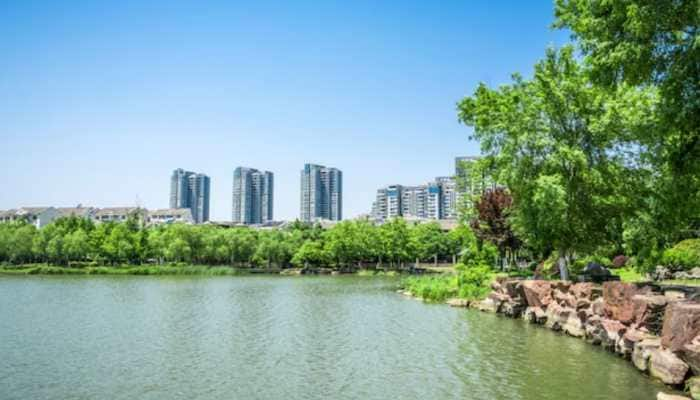Lesson for Rajinikanth: Why TTV Dhinakaran really won the RK Nagar election
Money or star power alone cannot buy votes. Dhinakaran's efforts went largely unnoticed.
Trending Photos
)
More than being careful about indulgences between Christmas and New Year, one actually needs to be watchful of overconsumption between New Year and Christmas. Applying that axiom to political understanding, all those instantaneous outpourings on TTV Dhinakaran's triumph at the RK Nagar by-elections - analysis, discussions, tweets, status messages, trolls and so on - can be overlooked as unhealthy chatter of the Christmas- New Year week. But before embarking on the New Year and start enduring discussions on Rajinikanth's political plunge, one needs to understand Dhinakaran's electoral victory, which is being fashionably decried as a 'shame' by the elite.
As the rhetoric went, it was 'money, money and nothing else' and that it was the murder of democracy by the people of RK Nagar. Self-styled champions of democracy across the intellectual spectrum, from news media to politics to social media, through their erudition and eloquence, also created a general impression that Dhinakaran was the most unworthy of the candidates in the fray and that the people would not have touched him with a barge pole but the cash-for-vote transaction. Perching themselves at a moral high ground, they spoke as though money was being given to voters for the first time in RK Nagar.
Well, this belated attempt to elucidate that money alone did not swing the electoral fortunes at RK Nagar in December 2017, when everyone else is animatedly figuring out the prospects of Rajnikanth in Tamil Nadu politics, is definitely not to justify or glorify Dhinakaran's feat of polling 89,013 votes, which is 40,707 votes more than the runner-up, AIADMK's E Madhusudhanan. This is to drive home the point that singular factors like money or star power or film popularity alone cannot bring success in politics.
To have a real hang of RK Nagar elections, some myths need to be busted. One is the popular assumption that Dhinakaran is a political novice and another is that people invariably voted for symbols or parties and not for candidates.
Dhinakaran has been in active politics, even if he has not been under the limelight, for at least two decades, serving a term in Rajya Sabha (2004-10) and contesting two Lok Sabha elections from Periyakulam, winning in 1999 and coming runner-up in 2004.
It was during his tenure as MP he was entrusted with the task of ensuring the victory of J Jayalalithaa in the by-election from Andipatti Assembly constituency in 2003.
That Andipatti by-election happened much before the legendary Thirumangalam by-election of 2009, which the DMK took as a prestige affair and it ultimately gave political pundits the term 'Thirumangalam formula' to refer to the cash-for-vote transaction.
In 2003, Jayalalithaa's victory was paramount for her to remain as Chief Minister and Dhinakaran mobilized the voters of Andipatti at the household level. That was the time when documentary identification was made mandatory for exercising the franchise and the AIADMK ensured that all voters had at least a bank passbook, which was one of the accepted documents. Dhinakaran devised and executed the entire strategy by understanding the social dynamics and also establishing a personal rapport with the local people.
When he went to RK Nagar, 14 years and many elections later, in April 2017 to conquer it under the AIADMK banner, he did not have the advantages of Andipatti, which being a segment of his Periyakulam Lok Sabha constituency was a familiar ground.
Yet, he overcame the handicap by reaching out to the local people, and worked at the ground level even after the elections were cancelled in April. He had been a guest at several weddings and a mourner at almost every funeral at RK Nagar in the past eight months, thus endearing himself with the local people and also interacting with them.
The local people, too, started liking him. Even if they cannot be credited with the genius and political acumen of the man after whom the constituency has been named (Dr Sarvepalli Radhakrishnan), they are not naïve enough to not see through the series of games that were played against him.
For those who are not aware of the roadblocks that Dhinakaran faced, the first one was the freezing of AIADMK's 'two leaves' symbol as there was an alleged split in the party. Then, the election was cancelled when it looked that the popularity of 'hat', the symbol that was given to the EPS faction of AIADMK in April, was surging.
Then the Election Commission was procrastinating on calling for the re-election, which was finally done a few days after the 'two leaves' symbol was given back to the party whose two factions had merged but after expelling Dhinakaran. Once again, the 'hat' symbol was denied because he had familiarized himself with that symbol and 'pressure cooker' was given instead.
In those repeated bids to prevent Dhinakaran from capturing the RK Nagar, and the different splits engineered in the AIADMK, the people saw the invisible hand of the BJP. That the BJP is highly unpopular in RK Nagar was evident from the results - its candidate, Karu Nagarajan, garnered 1417 votes, as against the NOTA score of 2,373.
So, it can be inferred that the people, particularly those from the minority communities preferred Dhinakaran because he openly spoke against the BJP, which the other two major candidates, Madhusudhanan and DMK's Marudhu Ganesh refrained from doing.
If the DMK could just get 24,651 votes and lose the deposit, it was because many of the traditional DMK supporters saw no possibility of a political change in the state by sending Marudhu Ganesh to the Assembly.
Also, a rumour was spread that the DMK was all set to join hands with the BJP, which gained credence with Prime Minister Narendra Modi suddenly calling on DMK chief M Karunanidhi. So they voted for Dhinakaran hoping that he would bring down the present government, under Edappadi K Palaniswami, which they suspect to be a stooge of the BJP.
Despite all these factors, if those who pointed fingers at 'money' got away with that, it was because the news media was flush with reports of cash distribution in RK Nagar. But no one could exactly pinpoint as to which party was distributing cash.
Some reports said that it was the AIADMK that excelled in cash distribution in December. Whatever it was, cash distribution during elections precedes even the 2009 Thirumangalam by-election. For those with short memory, Rajinikanth himself had acknowledged the existence of the cash phenomenon, way back in 1996. In his historic speech - was it not a political plunge? - mobilizing people against J Jayalalaithaa, he urged his followers to take money from whoever gives them but vote only for the DMK-led alliance.
So, it is preposterous to suggest that the people, who have been seeing cash flow whenever there was an election, fell for a few currency notes with no political aspirations of their own and elected Dhinakaran. They probably found in him an ideal candidate, who is undoubtedly the most flamboyant, affable and articulate among the top notch lot.
Well, that may bring the obvious question: 'did they not know of his and his family's precedents, the court cases and so on?' Perhaps they did, but they knew more about the other two top candidates, who are local politicians. They too have precedents that the 'national' media might not have taken note, but the voters would definitely have.
For all you know, Dhinakaran invoked hopes among the RK Nagar voters of ushering in a change in the state's political order.
Yes, it is a lesson for Rajnikanth, who too promises change in the political order. As Dhinakaran is accused of possessing piles of cash, Rajnikanth has cartloads of charm and personal charisma. But that popularity alone will not convert to votes.
He needs to reach out to the people as a politician, understand their political aspirations and win over their confidence as a potential leader, just as Dhinakaran did to win just one by-election.
(G Babu Jayakumar is a senior journalist based in Chennai.)
(Disclaimer: The opinions expressed above are the personal views of the author and do not reflect the views of ZMCL.)
Stay informed on all the latest news, real-time breaking news updates, and follow all the important headlines in india news and world News on Zee News.
Live Tv







)
)
)
)
)
)
)
)
)
)
